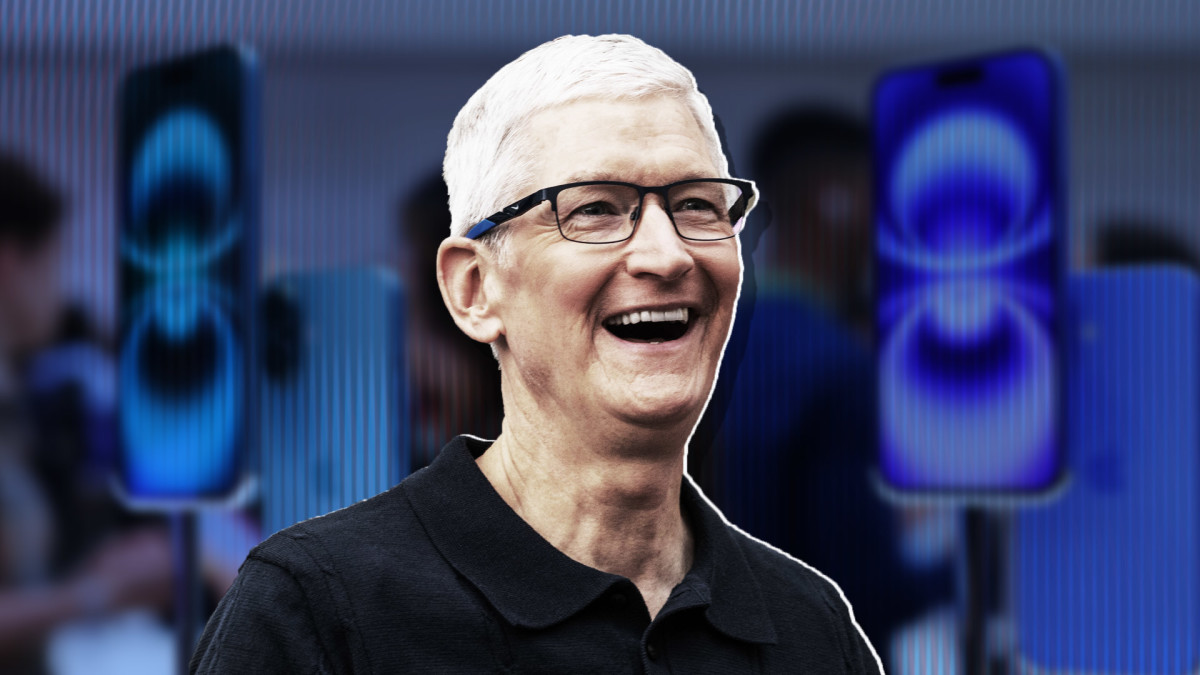In a big win for consumer electronics giant Apple, Alphabet (GOOGL) has secured an arguably best-case outcome in the Department of Justice’s antitrust case against it.
Despite ruling that Alphabet engaged in monopolistic behavior last year, Judge Amit Mehta has said the company won’t have to break itself up or walk away from its deal to be the default search engine for Apple’s Safari browser.
“The emergence of GenAI changed the course of this case,” wrote Mehta in the memorandum opinion. “Google will not be barred from making payments or offering other
consideration to distribution partners for preloading or placement of Google
Search, Chrome, or its GenAI products. Cutting off payments from Google
almost certainly will impose substantial—in some cases, crippling—
downstream harms to distribution partners, related markets, and consumers,
which counsels against a broad payment ban.”
Judge Mehta’s decision clears the way for Alphabet to pay Apple billions in fees annually. It’s also a win for Apple because Mehta said that Google can’t have exclusive deals and must negotiate contracts annually, potentially giving Apple more negotiating power than in the past.
“Good news for big tech, the regulator’s bark is bigger than the bite,” wrote long-time Wall Street tech analyst Gene Munster on X. “Apple also gets a nice win because the ruling forces Google to renegotiate the search deal annually.”

Image source: TheStreet/Getty
Apple pockets billions of dollars in pure profit
Alphabet pays Apple $20 billion annually as the exclusive default search engine behind Apple’s Safari Internet browser.
According to Munster, that represents 15% of Apple’s operating profit, and, according to Morgan Stanley, it works out to about 36% of the money Google generates from Safari searches.
Related: Forget AI chips: Nvidia beats rival AMD in another key way
The threat of a ruling that would have spiked Google’s deal with Apple (AAPL) has been hanging over Apple’s stock since Mehta determined in August 2024 that Alphabet violated Section 2 of the Sherman Act.
There are over 1.5 billion active iPhones worldwide, according to DemandSage, making it a digital real estate must-have for the likes of Google’s search business.
The decision adds much-needed clarity at a time when Apple has been struggling to convince users and Wall Street that it is not falling behind in artificial intelligence.
So far, most of Apple’s AI development has been received with a collective shrug of the shoulders, prompting widespread speculation this summer that CEO Tim Cook may consider acquiring an AI chatbot to bolster efforts.
“Huge win for Google in DOJ court ruling and Apple massive search deal survives. Big overhang removed from both Google and Apple,” wrote Wedbush’s veteran tech analyst Dan Ives on X after Mehta’s decision.
Jim Cramer delivers one word on Apple’s stock after Google ruling
After the news broke, CNBC Mad Money host Jim Cramer wrote, “Apple owns it, don’t trade it!” on X.
Related: Apple iPhone faces a major threat from Samsung
There’s reason to think that Apple could start to regain investor momentum, especially with this overhang gone.
The company recently sidestepped stiff tariffs on imports from India with a promise to increase its investment in U.S. manufacturing by $100 billion to $600 billion.
“Apple’s tariff exemption should alleviate tariff headwind concerns ahead of the now newly announced 100% semiconductor tariffs,” wrote Goldman Sachs’ analysts in August. “In addition, the exemption could also put it at a potential cost advantage relative to smartphone, PC, and tablet competitors that do not receive an exemption.”
Apple could roll out AI-related launches next year, helping convince users of older devices to finally upgrade and unlocking significant revenue and profit for the company.
“The company’s growing investments in data centers and server manufacturing factories demonstrates its commitment to Apple Intelligence and improves the likelihood of its AI features being a potential demand driver for Apple products in 2026E and beyond,” wrote Goldman Sachs.
Apple’s price-to-earnings ratio, a standard valuation measure used by investors, is 32, in the middle of its 5-year P/E range of 20 to 44. Its forward P/E ratio is 28.
“Valuation is attractive relative to AAPL’s historical multiple — both on an absolute & relative basis — and compared to key tech peers,” said Goldman Sachs analysts on Aug. 26.
Apple’s annual iPhone event arrives September 9
Every September, CEO Tim Cook takes the stage to announce the next iteration of its iPhone and product line-up.
This year, Goldman Sachs expects Cook to reveal a thinner iPhone 17 series with a larger screen size and updated Apple Watches.
Goldman Sachs expected September Apple iPhones launches:
- iPhone 17 (base).
- iPhone 17 “Air” (replacing the Plus model).
- iPhone 17 Pro.
- iPhone 17 Pro Max.
Analysts expect the base model’s display to increase and for all models to feature faster A19 series processor chips and more RAM to handle AI workloads ahead of 2026’s AI refresh.
“We expect the main feature to be the launch of a slim iPhone (iPhone 17 Air) to replace the current Plus model,” said Bank of America analyst Wamsi Mohan. “We expect the Air to be 5.55mm thick making it ultra-thin and light.”
Apple’s stock could benefit from the Google news removing an overhang, new product launches next week, and potential AI progress in 2026.
Goldman Sachs rates Apple a “buy” with a 12-month price target of $266, while Bank of America’s price target is $250.
Apple’s shares closed at $229.72 on Sept. 2.
Related: Surprising Google Chrome bid upends Apple AI rumors
#Apple #winner #Google #antitrust #ruling